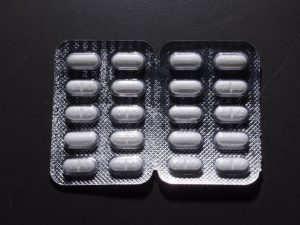How To Recognize Diet Pill Abuse

OLYMPUS DIGITAL CAMERA
Diet pill abuse can develop at any age, but current statistics from the National Institute of Mental Health suggest that high school-aged females are most prone to this type of addiction.
According to one study from the University of Minnesota, 20 percent of females have used diet pills by the age of 20. Another study published in Eating Behaviors revealed that people with eating disorders are more likely to use diet pills.
Underlying body dissatisfaction issues, such as body image dysmorphia, tend to be the cause of diet pill abuse. Individuals use diet pills as a temporary solution for weight loss, and most often, this use is not supervised by a physician.
Physical Symptoms
Signs and symptoms of diet pill abuse may vary, but they tend to mimic symptoms of general drug abuse. Abusing diet pills can result in chest pain, rapid weight loss, irregular heart beat, nausea, mood swings, vomiting, seizures, stomach pain, memory loss, severe headaches, hallucinations and blackouts.
Physical effects might lead to menstrual cycle disturbances in women, as well as fluctuations in appetite, urinary tract problems, diarrhea and respiratory failure.
Psychological Symptoms
Diet pill abuse can also lead to psychological problems, including anxiety, paranoia, restlessness, depression and low self esteem. Since diet pills can be addictive, a person can easily become emotionally dependent on the drug, believing that the pills are the only way he or she can maintain a certain body weight.
Social Symptoms
A person abusing diet pills is likely to suffer social consequences. This individual may have problems maintaining friendships or family relationships. Avoiding social encounters or isolating more often are also warning signs that there may be a problem.
Since withdrawal from diet pills can be an uncomfortable experience, it’s important to seek medical attention if someone you know is suffering from a physical or psychological dependence on these drugs.
Recovery from diet pill addiction is possible, but it may require the support of an eating disorder counselor, cognitive behavior therapy or other treatment methods.
Source: Addiction Hope
 Eating Disorder Self Test. Take the EAT-26 self test to see if you might have eating disorder symptoms that might require professional evaluation. All answers are confidential.
Eating Disorder Self Test. Take the EAT-26 self test to see if you might have eating disorder symptoms that might require professional evaluation. All answers are confidential.